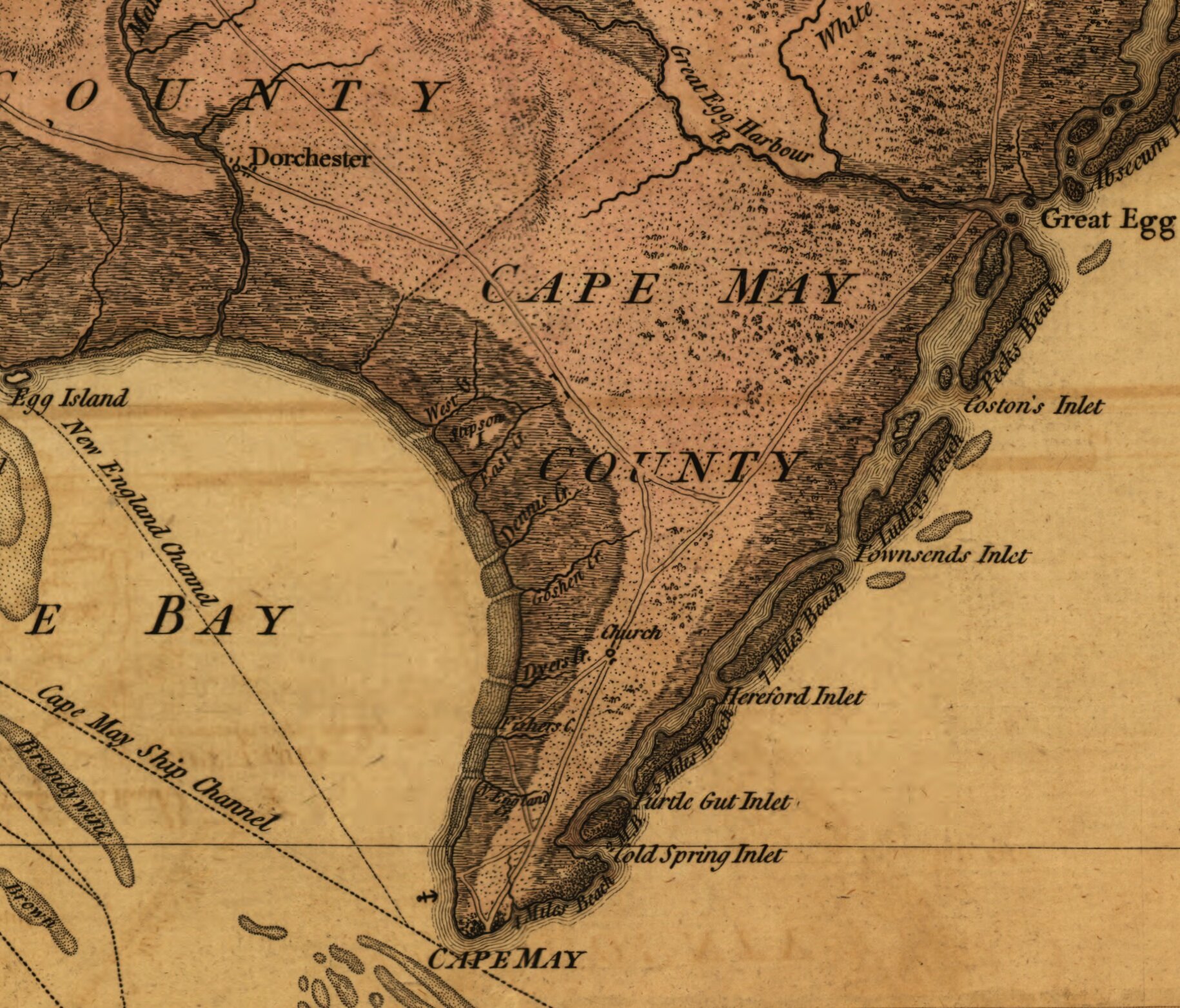Commodore John Barry & The Battle of Turtle Gut Inlet
When one thinks about strolling down Toledo Avenue on a summer’s day in Wildwood Crest, the only thing that probably crosses the mind is what time you’ll end up heading to the beach that day, or in many cases, what time happy hour will start. Once a small body of water that separated the present day Crest and Gables, Turtle Gut Inlet was so shallow and murky that it was land-filled with dirt in the 1920’s. Though the Crest section of the Wildwoods is tiny in size, not many people know that the shore town’s Naval history is vast, and centered around one of Irish Philadelphia’s most beloved sons.
The day is June 29th, the year is 1776, and a young sailor turned warrior commands the frigate Lexington at the mouth of the Delaware Bay along the Cape May Peninsula. His name is Captain John Barry, a Philadelphia immigrant from the shores of County Wexford Ireland. His job, like so many other common sailors of the time, was to patrol, defend, and elude British warships from entering the mouth of the bay from the Atlantic in their quest to sail up the Delaware. The fall of the Delaware River would mean the ultimate fall of the ports of Philadelphia, and the inevitable invasion and occupation of the most essential and key city of the colonies.
Timing is key. I think it is safe to say that many of the peasant sailors of the early rag tag continental navy had no inclination to the nature of the conversations taking place on shore in the halls of the State House, or that at that very moment a young plantation owner from the hills of Virginia was in a room at 7th and Market Streets crafting his most famous document. In a few short weeks, the founding fathers of the Second Continental Congress would be setting the course for not only America but the World forever through their proclamation of Independence.
What ensued on the days of the 28th and 29th of June 1776 in cinematic terms could be described as “The Patriot” meets “Master and Commander” with John Barry encapsulating the essence of Russel Crowe’s brave and skilled seaman with the fervent patriotism and warring ability of Mel Gibson’s militiaman.
The Continental ship Nancy was sailing on its way up the coast from the Virgin Islands bound with munitions and gun powder for Washington and the Continental Army. Seen off the coast of the Cape May peninsula, signals were sent to the ships in the area that it was being pursued rapidly by two British ships of war. Barry and his crew aboard the Lexington eagerly set sail from Delaware Bay to the sea shores along Cape May to aid them in their flight.
When they arrived they saw the Nancy had run aground in the gut of Turtle Gut in their haste to escape the royal navy. Stranded and alone, and under heavy battery fire, Barry immediately ordered his men to board their small barges to rescue their fellow sailors, as well as the ever important bounty of gun powder stored in the Nancy’s hull. As they reached their friends, Barry took command, and while manning the Nancy’s guns, was able to counter the British bombardment as the rest of the party unloaded the precious cargo to the shores. Eventually the ability to hold off the mighty British warships grew impossible, and the order was given to flee into the forests of the island for rescue on another part of the peninsula. Prior to their retreat however, hundreds of pounds of powder were left on board, connected to a make shift fuse. As the approaching British search and destroy parties boarded the Nancy, the flame of the lit fuse reached its destination, blowing 7 sailors of the enemy’s navy through the sky into Kingdom come with the explosion heard apparently as far away as Philadelphia.
I’m no physicist, but the theory of the Butterfly Effect comes to mind for me, or in lay mans terms that I can understand, the notion or idea that the flapping of a butterfly’s wings can cause a hurricane on the other side of the world. The flap of the wing? The thunderous, killer, and awe inspiring sight, sounds, and tremors of the Nancy’s explosion on a sunny Cape May afternoon. The Hurricane? Independence.
Although the Battle of Turtle Gut Inlet probably did not have a direct effect on that weeks upcoming announcement, I like to think that the essence of Barry’s heroism, spirit, and bravery took hold in the winds and the ripples of the water, eventually reaching Philadelphia, where in no less than a week, Jefferson’s document would alter human history and set America’s sail for a voyage into the most profound and important Revolution the world had ever seen.
JH
